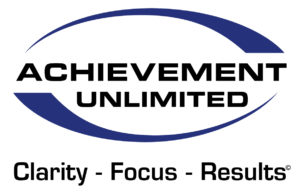Tuesdays with Michael: Incentive Motivation a More-Enlightened Strategy Than Fear

 By Michael Gidlewski
By Michael Gidlewski
Last week, I discussed fear as one of three basic ways people are motivated. This week, I’d like to talk about incentive motivation.
Incentive motivation is generally regarded as a more-enlightened strategy than fear. This employs the use of rewards. It is simply a process of luring people by offering prizes, bribes, and flattery for something they should be doing anyway. Incentives include money, bonuses, trips, prizes, and other rewards for a job well done.
Money is a great attention-getter but a lousy motivator. The classic example of incentive motivation is a carrot hanging from a stick, in front of a donkey, pulling a cart. Do you get the picture? What’s required for this system to work? First, the donkey must be hungry and like carrots. Then, the load in the cart must be light enough; the carrot must be attractive enough; and the stick must be the right length, not too long and not too short. So, if the carrot is big enough, the load in the cart is light enough, and the donkey is hungry enough, this type of motivation works, and the donkey pulls the cart. All of the pieces have to fit.
You can take away the carrot and just use the stick as a whip, and you have fear motivation and that may work for a while. But what if you could change the donkey into a thoroughbred so it ran for the sheer joy of running? There would be no need for a whip or a carrot.
The “carrots” used in business include bonuses, trips, prizes, contests, raises, and promotions. Incentive motivation’s force (or power) relies upon the promise of some type of prize for a certain amount of effort. What kinds of incentive motivation have been used on you?
How about an extra day of vacation to anyone who has perfect attendance for an entire year? Or maybe the promise of a company picnic for three months without any work accidents? Early dismissal on Friday if the work week goes well? Or a holiday bonus for anyone who brings in a new client?
Incentive motivation can be very effective with a clear destination or certain goals to achieve, but in the final analysis, it is temporary, because it’s based upon reward and appetite. When the incentive or reward is achieved, the appetite is satisfied. When that happens, the incentive no longer has the power to motivate. Rewards, by their very narrow focus, restrict your possibility. That creates a serious problem.
Soon, the privilege is regarded as a right, and the prize must continually be increased. In effect, we create a behavioral response of getting people to do less and less for more and more. We develop in people a tendency to have an entitlement attitude. Since the concrete needs and desires of people change constantly, incentive motivation is unstable, and its results are unpredictable.
When a company depends on incentive motivation, it must increase its incentives in order to motivate a person whose appetite has already been satisfied. Incentives must become progressively more impressive to continue to motivate the desired behavior. If, eventually, a person becomes completely satisfied, it is impossible to motivate that person using incentives.
I know of people who don’t bother to try to get the free day of vacation in exchange for perfect attendance because the promise of the reward is attached to a long-term goal. The wait is too long to be of much value.
Despite the shortcomings of fear motivation and incentive motivation, these are the most common forms of motivation used in business and industry, in our schools, and even in our homes. But fear and incentives just don’t work as well as they should. They are both external and temporary.
Unfortunately, both of these types of motivation soon become less effective since they’re rarely accompanied by any kind of ongoing follow-up to change people’s attitudes or habits. The solution is not to entice people with sweeter carrots or threaten them with a sharper stick. These external motivators actually do more harm than good in the long run.
Next week, I will discuss attitude motivation.
https://www.youtube.com/watch?v=dqicIc3l0D0
_________
Michael Gidlewski is President of West Chester-based Achievement Unlimited, Inc., as well as a growth catalyst and motivational speaker. He works with motivated business owners and entrepreneurs to clearly define the elements of what they dearly want their businesses and lives to look like, then helps them connect all the moving parts that make up those visions to consistent action and habits. Michael can be reached at 610-793-6609 or via e-mail at michael@achievable.com.
[uam_ad id=”80503″]
.
[uam_ad id=”80502″]
Connect With Your Community
Subscribe to stay informed!
"*" indicates required fields




![95000-1023_ACJ_BannerAd[1]](https://vista.today/wp-content/uploads/2023/03/95000-1023_ACJ_BannerAd1.jpg)











































